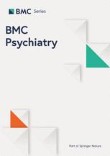Social capital and major depressive disorder among youth in Iran
Authors
Affiliations
Abstract
Background
Social capital has long been recognized as a determinant of various health outcomes. However, the existence and magnitude of these associations may vary across different health conditions, different communities, and periods. This study aimed to investigate the association between social capital and major depressive disorder (MDD) among participants of the Persian Youth Cohort (PYC) study.
Methods
The PYC study enrolled 11,592 participants aged 15–34 years, from four cities in Iran representing a range of geographic areas. Baseline assessments included measuring lifetime MDD using the Persian version of the Composite International Diagnostic Interview (CIDI-2.1) and a 27-item social capital questionnaire to evaluate voluntary participation, trust, and sense of cohesion. We analyzed the baseline data using logistic regression to identify potential associations.
Results
The prevalence of lifetime MDD was 18.3%. The mean social capital-total score was 73.93 (SD = 13.93). A higher social capital-total score was inversely associated with the likelihood of MDD (AOR: 0.70, 95% CI: 0.66–0.74). Moreover, participants with higher scores in voluntary participation (AOR: 0.88, 95% CI: 0.83–0.92), trust (AOR: 0.65, 95% CI: 0.62–0.68), and sense of cohesion (AOR: 0.72, 95% CI: 0.68–0.75) were less probable to suffer from MDD.

